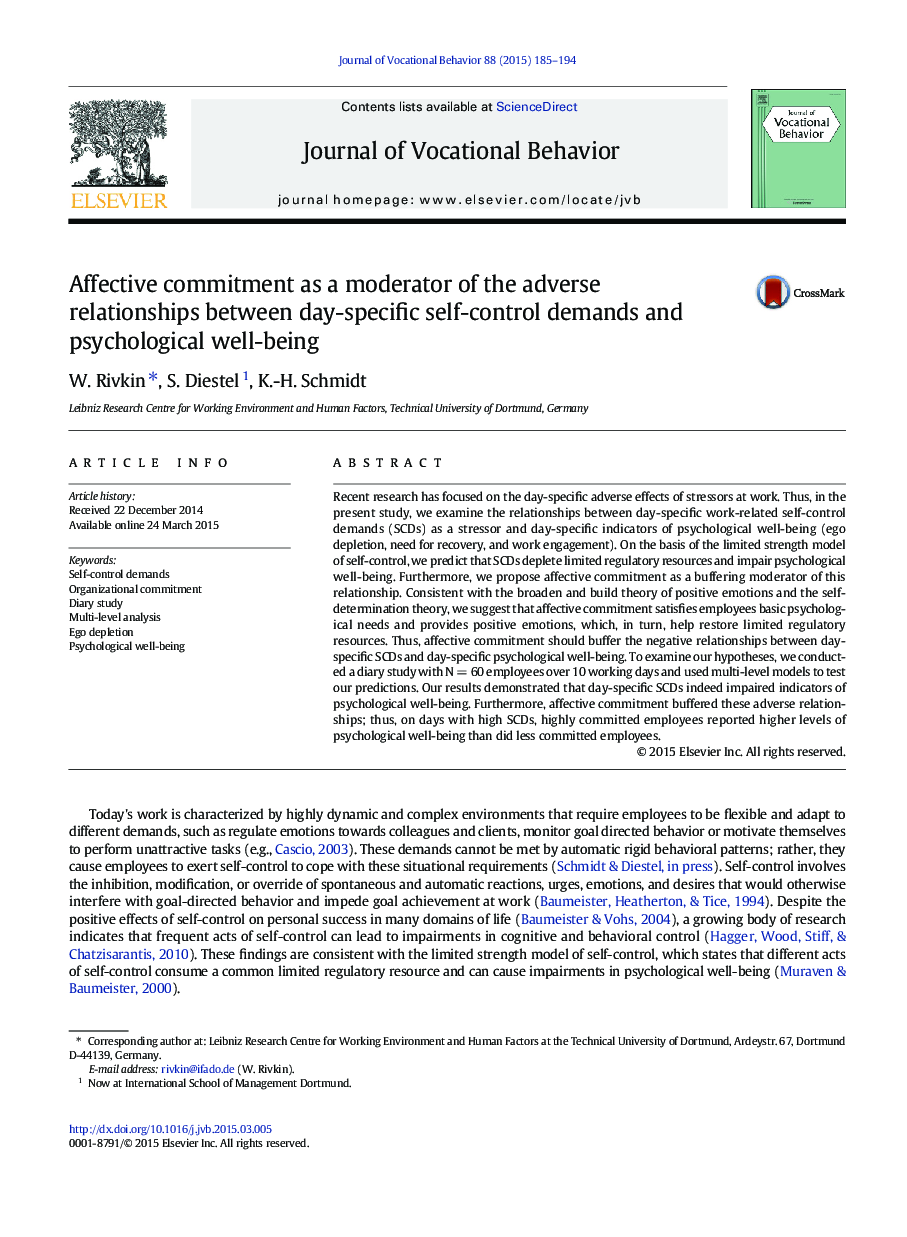| Article ID | Journal | Published Year | Pages | File Type |
|---|---|---|---|---|
| 886770 | Journal of Vocational Behavior | 2015 | 10 Pages |
•Our research demonstrates that day-specific SCDs impair employees' well-being.•Affective commitment buffers the adverse effects of day-specific SCDs.•We propose that affective commitment fulfills basic psychological needs.•Need satisfaction is associated with positive emotional states.•Positive emotional states in turn replenish limited regulatory resources.
Recent research has focused on the day-specific adverse effects of stressors at work. Thus, in the present study, we examine the relationships between day-specific work-related self-control demands (SCDs) as a stressor and day-specific indicators of psychological well-being (ego depletion, need for recovery, and work engagement). On the basis of the limited strength model of self-control, we predict that SCDs deplete limited regulatory resources and impair psychological well-being. Furthermore, we propose affective commitment as a buffering moderator of this relationship. Consistent with the broaden and build theory of positive emotions and the self-determination theory, we suggest that affective commitment satisfies employees basic psychological needs and provides positive emotions, which, in turn, help restore limited regulatory resources. Thus, affective commitment should buffer the negative relationships between day-specific SCDs and day-specific psychological well-being. To examine our hypotheses, we conducted a diary study with N = 60 employees over 10 working days and used multi-level models to test our predictions. Our results demonstrated that day-specific SCDs indeed impaired indicators of psychological well-being. Furthermore, affective commitment buffered these adverse relationships; thus, on days with high SCDs, highly committed employees reported higher levels of psychological well-being than did less committed employees.
